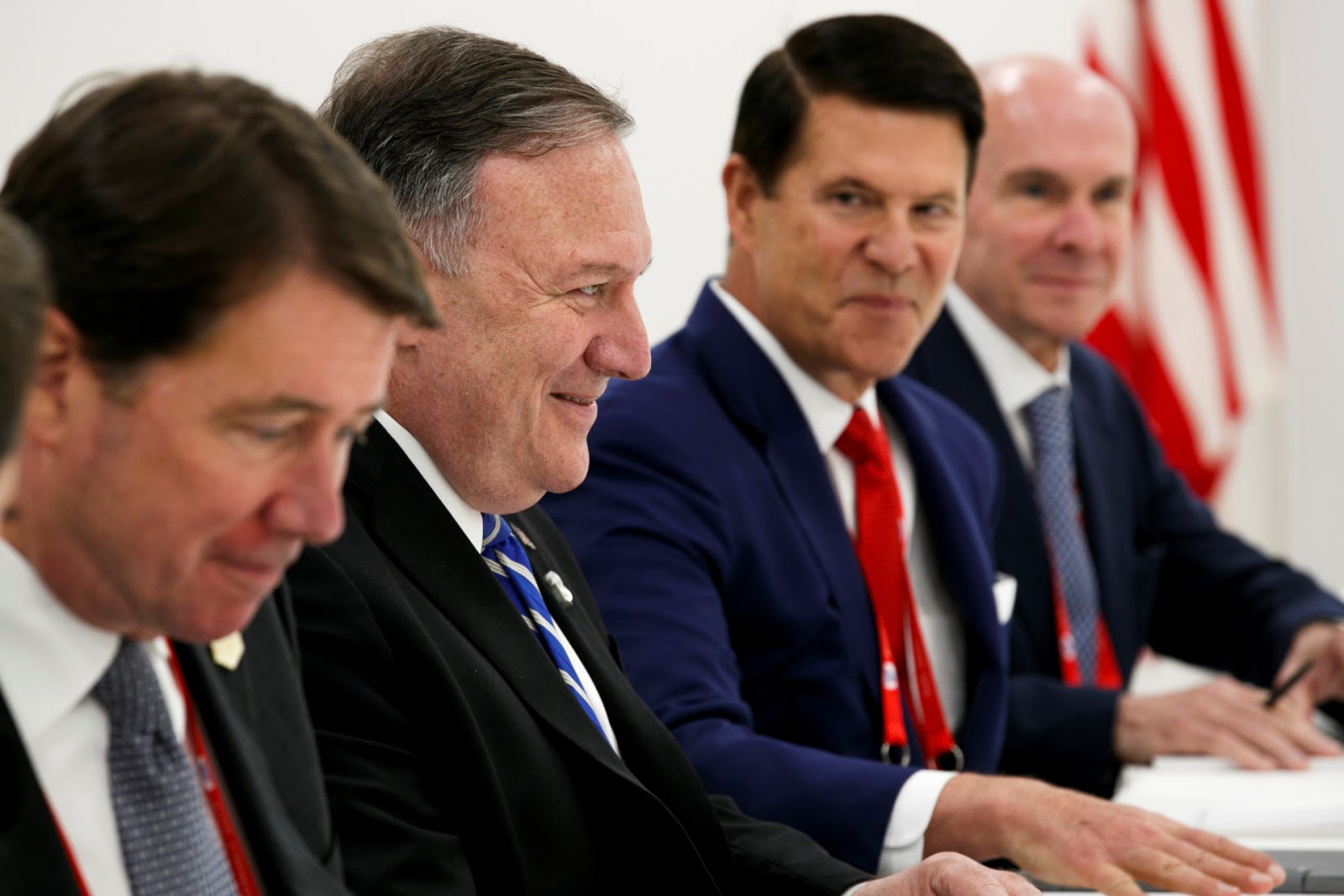U.S. increases high-level Taiwan contacts as Pentagon plans large weapons sale
Two high-level American officials have met with Taiwanese officials this week, continuing a trend of increased Taiwan-U.S. diplomatic contacts. Meanwhile, the U.S. is planning to sell “as many as seven major weapons systems” to Taiwan soon.

In early August, U.S. Secretary of Health and Human Services Alex Azar visited Taiwan, marking the high-level official contact between American and Taiwanese officials since 1979. In advance of that trip, we asked, “Does this portend a big change in Taiwan policy?”
No change in policy has been announced, but Washington has continued to increase its official contacts with Taiwan.
- Keith Krach, the U.S. Under Secretary of State for Economic Growth, Energy, and the Environment, is visiting Taiwan “to attend the memorial service for former President Lee Teng-hui [李登輝 Lǐ Dēnghuī] on September 19,” the U.S. State Department announced. Lee, who from 1988 to 2000 ushered the island from authoritarian rule to democracy, died on July 30.
- Krach is the “highest-level official from the State Department to visit the island in decades,” the Taiwanese Foreign Ministry said, per the New York Times. He arrived in Taiwan today, and will meet President Tsai Ing-wen (蔡英文 Cài Yīngwén) tomorrow. According to Focus Taiwan, Taiwan’s Presidential Office is preparing for a U.S.-Taiwan Economic and Commercial Dialogue, though Krach’s direct participation is unclear.
- In New York yesterday, U.S. Ambassador to the United Nations Kelly Craft had “lunch with James K.J. Lee, director of the Taipei Economic and Cultural Office in New York,” the AP reports.
Beijing’s response: A Foreign Ministry spokesperson urged the U.S. to “immediately stop official exchange with Taiwan” and “make no attempts to change the nature of its relationship with Taiwan,” adding that China would make a “necessary reaction in light of the development of the situation” (English, Chinese).
- “Two Chinese anti-submarine aircraft flew into Taiwan’s air defence identification zone on Wednesday,” the same day that Krach’s visit was announced by the State Department, per Reuters.
Washington and Beijing have also both ramped up their military activity around Taiwan in recent weeks.
- Beijing announced “four separate exercises along its coast” in August, Reuters noted, and the U.S. also conducted several navy activities in the region, raising concerns among Taiwan-based security and diplomatic sources that the risks of an accidental military clash were rising.
- Last week, “two dozen Chinese military aircraft and seven naval ships” operated near Taiwan’s southwestern coast, in what one former Taiwanese senior military officer told the Financial Times was “the most serious threat to Taiwan’s security since 1996, when Beijing fired missiles into waters just north and south of Taiwan.”
Up next: An unprecedented weapons package?
“The United States plans to sell as many as seven major weapons systems, including mines, cruise missiles and drones to Taiwan,” Reuters reported yesterday. The move would be “a rare departure from years of precedent in which U.S. military sales to the island were spaced out and carefully calibrated to minimize tensions with Beijing.”
A “notification to Congress is expected within weeks,” Reuters says, noting that while some of the weapons requests are over a year old, they “are only now being moved through the approval process.”
China’s nationalistic Global Times tabloid heaped scorn on the idea of increased military support for Taiwan from the U.S., warning, “Taiwan authorities are destroying their strategic maneuvering ability by completely siding with the U.S., turning itself into a pawn and a punching bag of the U.S., bearing the growing risk of an outbreak of a military conflict in the Taiwan Straits.”
For more on Taiwan’s position amid ever worsening U.S.-China tensions, see:
- Eyeing China, Pentagon plans larger, ‘more lethal’ navy / AFP via SCMP
- Taiwan calls for global coalition against China’s aggression as U.S. official flies in / Guardian
- Growing distrust of China brings $38 billion Taiwan windfall / Bloomberg (porous paywall)






